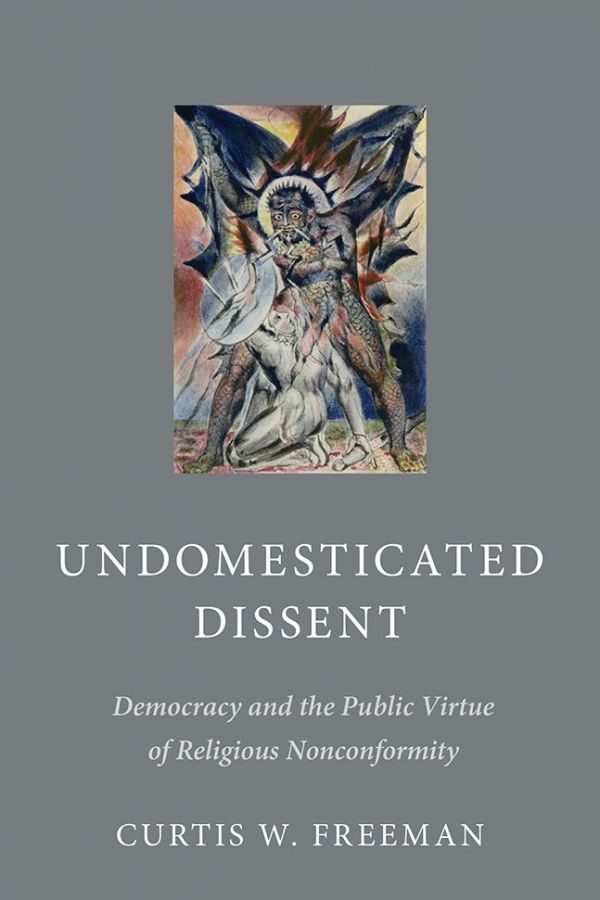Curtis W. Freeman, research professor of theology and director of the Baptist House of Studies at Duke Divinity School, has written a new book, which contends that religious dissent is not disloyalty but rather was crucial to the establishing of democracy in America and remains essential for its flourishing.
In the book, Undomesticated Dissent: Democracy and the Public Virtue of Religious Nonconformity, being published this month by Baylor University Press, Freeman shows the history of the public virtue of religiously motivated dissent from the 17th century to the present by focusing on three classic texts as testaments of dissent. He examines the evangelical and spiritual dissent of John Bunyan in The Pilgrim’s Progress, the economic and social dissent of Daniel Defoe in Robinson Crusoe, and the radical and apocalyptic dissent of William Blake in his poem Jerusalem.
Freeman shows that the enduring literary power of the texts derives from their original political and religious contexts. In addition, he traces the prophetic influence of these texts, revealing the confluence of great literature and principled religious nonconformity in the history of democratic political arrangements.
He argues that the apocalyptic imagination is a generative source for democracy, as well as a force for resistance to the coercive powers of domestication. By placing Bunyan, Defoe, and Blake within an extended argument about the nature and ends of democracy, Undomesticated Dissent reveals how these three Christian writers transmitted their democratic ideas across the globe, hidden within the text of their stories.
Freeman is also the author of Contesting Catholicity: Theology for Other Baptists, A Company of Women Preachers: Baptist Prophetesses in Seventeenth-Century England, and Baptist Roots: A Reader in the Theology of a Christian People.
